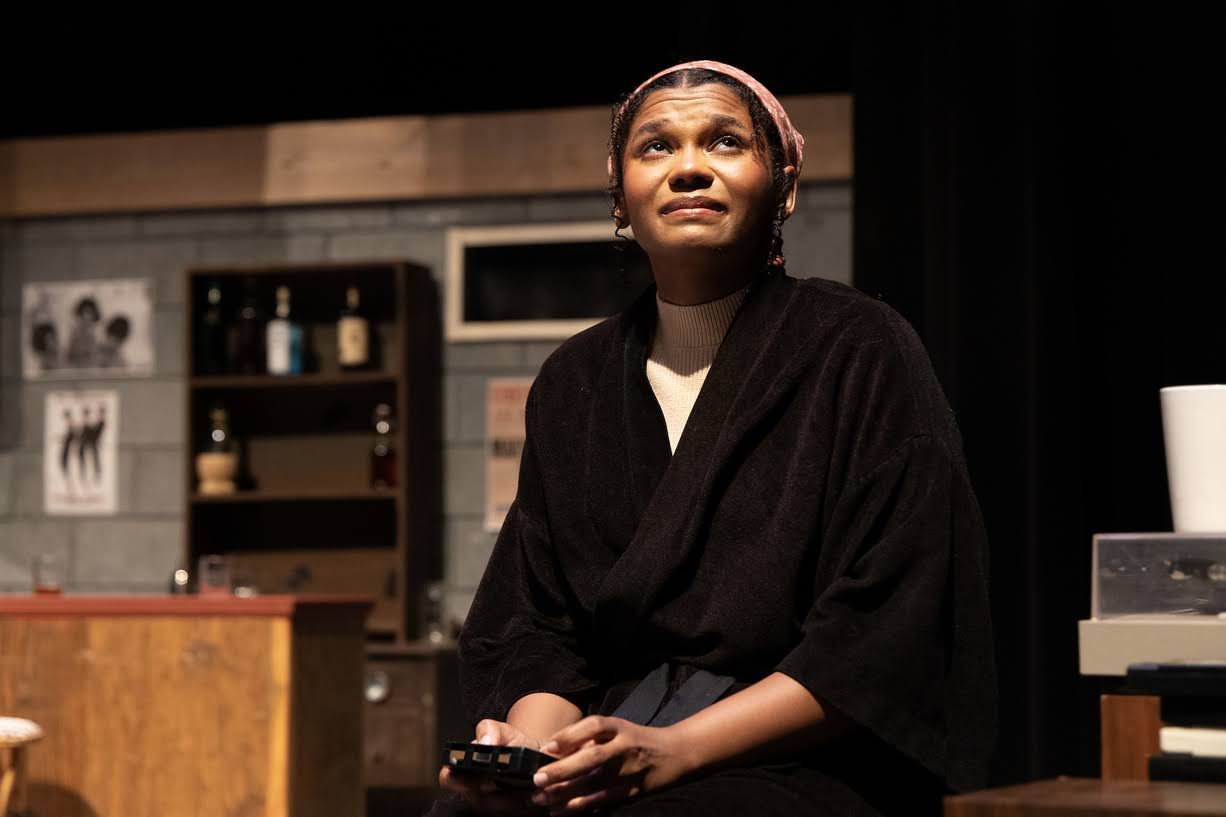We’re excited to introduce you to the always interesting and insightful Gabby Burton. We hope you’ll enjoy our conversation with Gabby below.
Gabby, thanks for taking the time to share your stories with us today Learning the craft is often a unique journey from every creative – we’d love to hear about your journey and if knowing what you know now, you would have done anything differently to speed up the learning process.
I have loads of teachers and mentors to thank for my learning process- my mom chief among them. She has supported every single step I’ve taken to advance my theatre studies from the very beginning.
As many kids do, I started learning about acting through musical theatre. At 11, my mom enrolled me in an after-school company that taught theatre classes and produced musicals. That’s where some fundamentals became a part of my DNA (like projecting, enunciating, or not having your butt face the audience), but it’s also where I fell in love with the fun and community aspect of theatre.
From there, I started doing theatre at school, before transferring to a fine arts school my sophomore year of high school. To make that happen, my mom moved us to a different county from where she worked. There, I learned to take theatre more seriously and dedicate as much time to it as you would any other art form or sport. My drama teacher, Mrs. Betty Walpert, required us to read Uta Hagen’s Respect for Acting, which was pretty transformative in me realizing how important discipline is for actors. Thanks to her, I am constantly reading acting books and scripts while watching plays, movies, TV shows, and interviews.
In college at Georgia Southern University (GSU), I was entering with a lot of fear, both from the pandemic and personal struggles. I changed to a theatre major within my first semester after doing a play with my favorite professor/director, Nick Newell. In my four undergraduate years, I did seven plays under him at GSU, in addition to a professional, immersive production in Savannah with a new company called Lowcountry Shakespeare (and of course, my mom was at every one). GSU provided countless life-changing theatre opportunities, but shows and classes with Nick were most influential. I love working with him because he teaches the love and discipline I’d already started learning, but he also encourages students to push themselves technically, and be advocates. He casted me in so many roles I did not ever see myself playing, and as I expanded my view of myself and artistic possibilities, I realized how that could open the minds of audience members. As a Black woman, this was huge. I began thinking much more consciously and fearlessly about how my art to be a service to represent, educate, and challenge people in a way that becomes more and more necessary every day.
Now, this summer, I am about to start as an apprentice for Commonwealth Shakespeare Company before starting my first semester at University of California San Diego in their MFA Acting program. Based on my experiences, I think it is essential for actors to never stop actively learning and growing. It’s also important for us to realize the impact stories can have on people, so we must be responsible in telling them. To my fellow global majority and marginalized actors, you can save a lot of time and heartache if you find people who are excited to put you in nuanced roles, and leave people behind who try to box you. Figure out what stories you want to tell and why, then go for it with people who have similar visions.
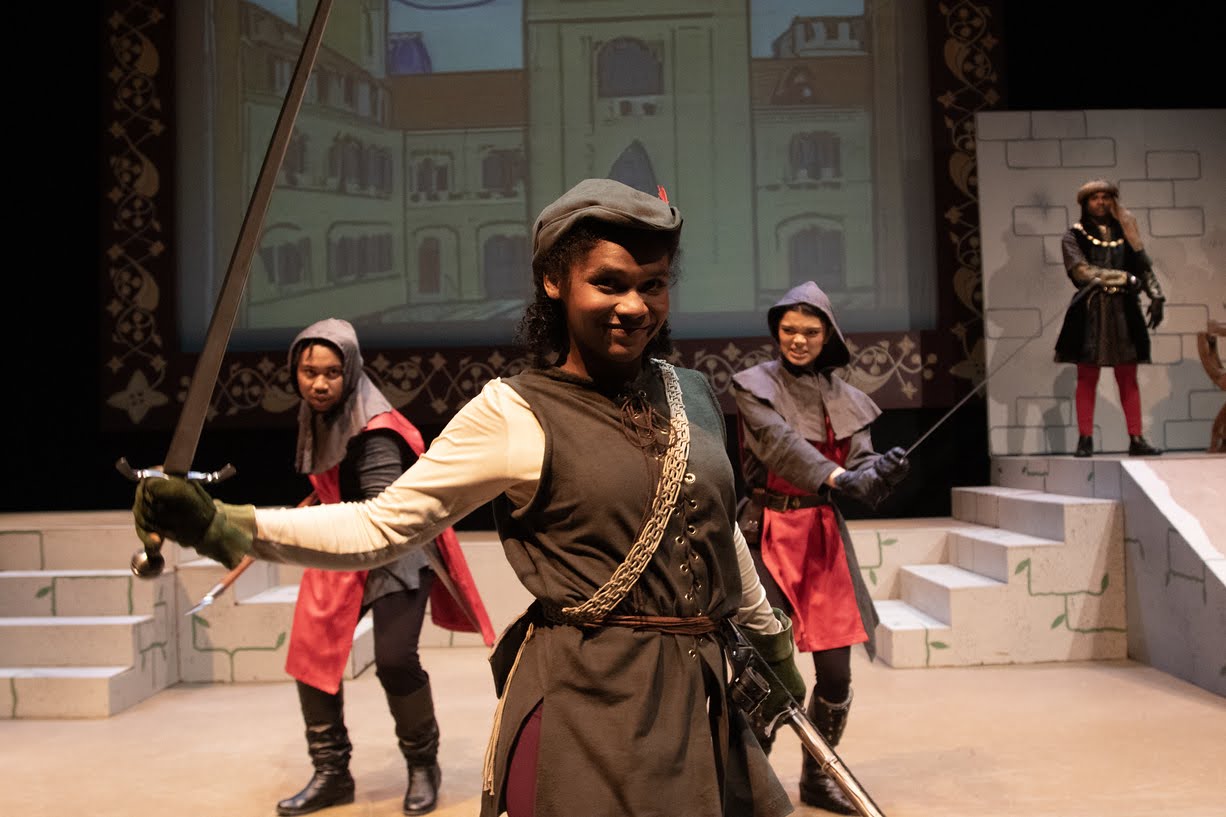
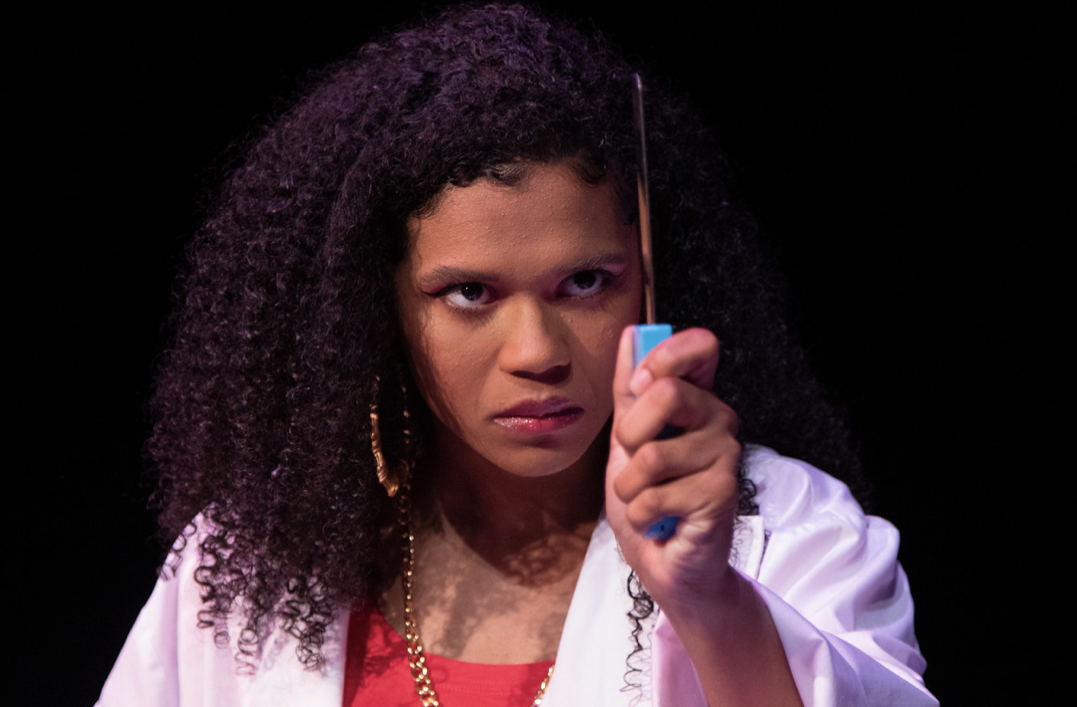
Gabby, love having you share your insights with us. Before we ask you more questions, maybe you can take a moment to introduce yourself to our readers who might have missed our earlier conversations?
My name is Gabby Burton (she/her), and I am a 22-year-old actor and student. I graduated this May from Georgia Southern University with my B.A. in Theatre and a minor in Creative Writing, and this Fall, I will move to California to earn my M.F.A. in acting at University of California San Diego.
I was first introduced to acting through a community theatre company that produced workshops and musicals. From there, in high school, I transferred to a fine arts high school where I fell in love with straight plays, then studied at Georgia Southern (GSU).
At GSU, I performed in eight mainstage plays, with some of my favorite roles being Keisha in Fairview, Chelle in Detroit ’67, and Marian/Robin in Marian or The True Tale of Robin Hood. During my time there, I also worked professionally. In 2023, I completed a summer tour as a TAD, or Tour Actor/Director, for Missoula Children’s Theatre. In 2024, I played Benvolio in Lowcountry Shakespeare’s immersive and site-specific production of Romeo and Juliet.
As an artist, I’m most interested in work that makes our industry more joyous, accessible, and inclusive through safe spaces and risky work. Whether this is through performing, educating, writing, or directing, my goal is to entertain, challenge, and transform souls.
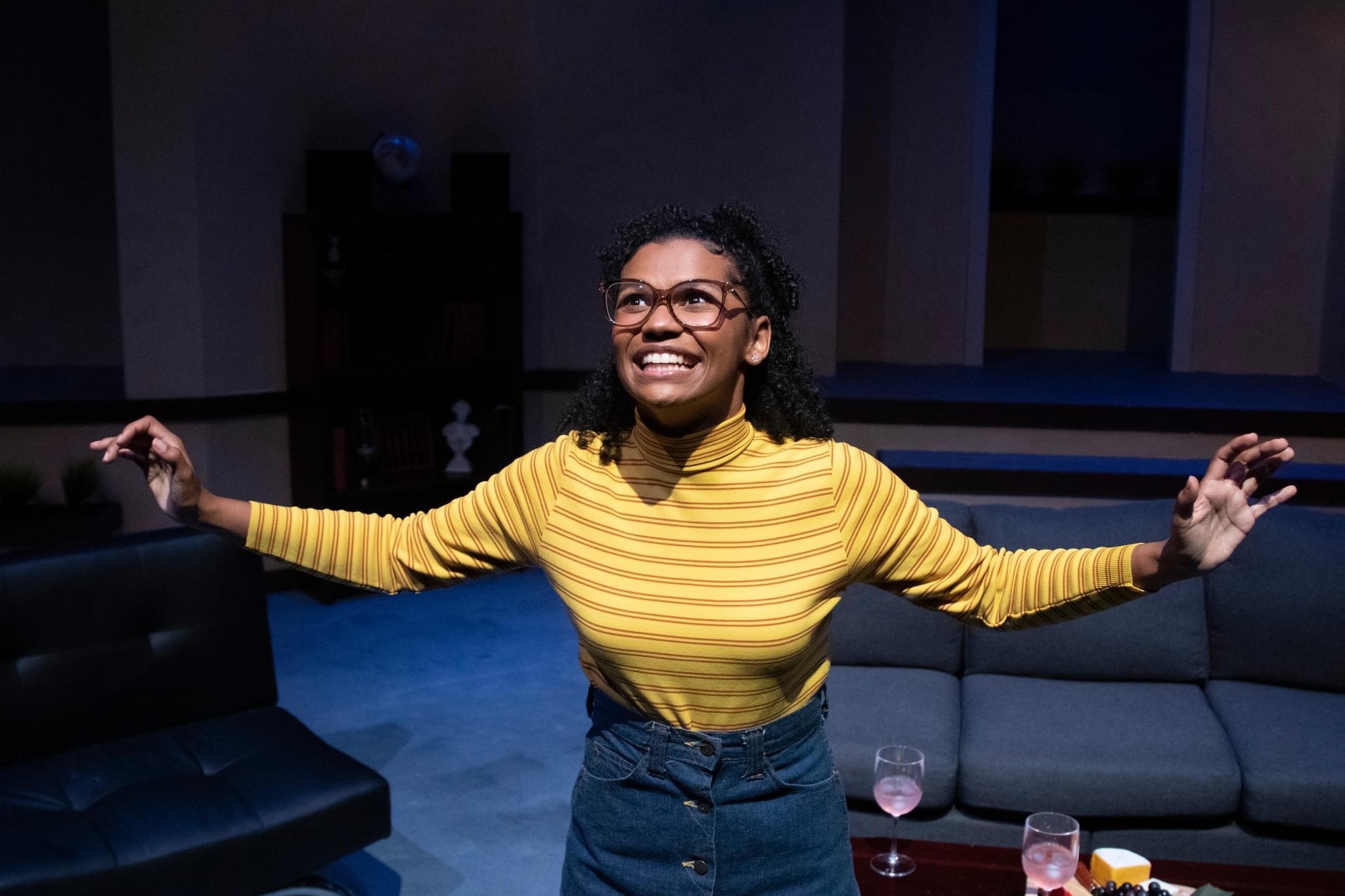

Are there any resources you wish you knew about earlier in your creative journey?
Absolutely, I think there are a lot of theatre and film artists who share invaluable information online for free, but you have to stay vigilant of people trying to scam or take advantage of new artists. For anyone interested in grad school, the Youtubers I owe much of my acceptance to are Shakespeare with Sarah, LMC Coaching, and How to Get Into Drama School. If you’re looking to improve Shakespeare, Royal Shakespeare Company has so many resources on Youtube and their website.
There are also great acting teachers who published books at really affordable prices. Some of my all-time favorites are Uta Hagen’s Respect for Acting and Jenna Fischer’s The Actor’s Life. There are countless others that I’m even still working through, but I highly recommend reading and actually doing any exercises in actor books. Also, thanks to Doechii, “The Artist’s Way” is already huge recently, but I’m happy to plug it too!
I also think few things are as valuable as reading plays and scripts, and watching as much as you can, especially in live or public spaces. That way, you can meet more creatives, get to know their individual paths, and build a network of your own. You also develop taste, which has personally been essential to my motivation and confidence in myself.
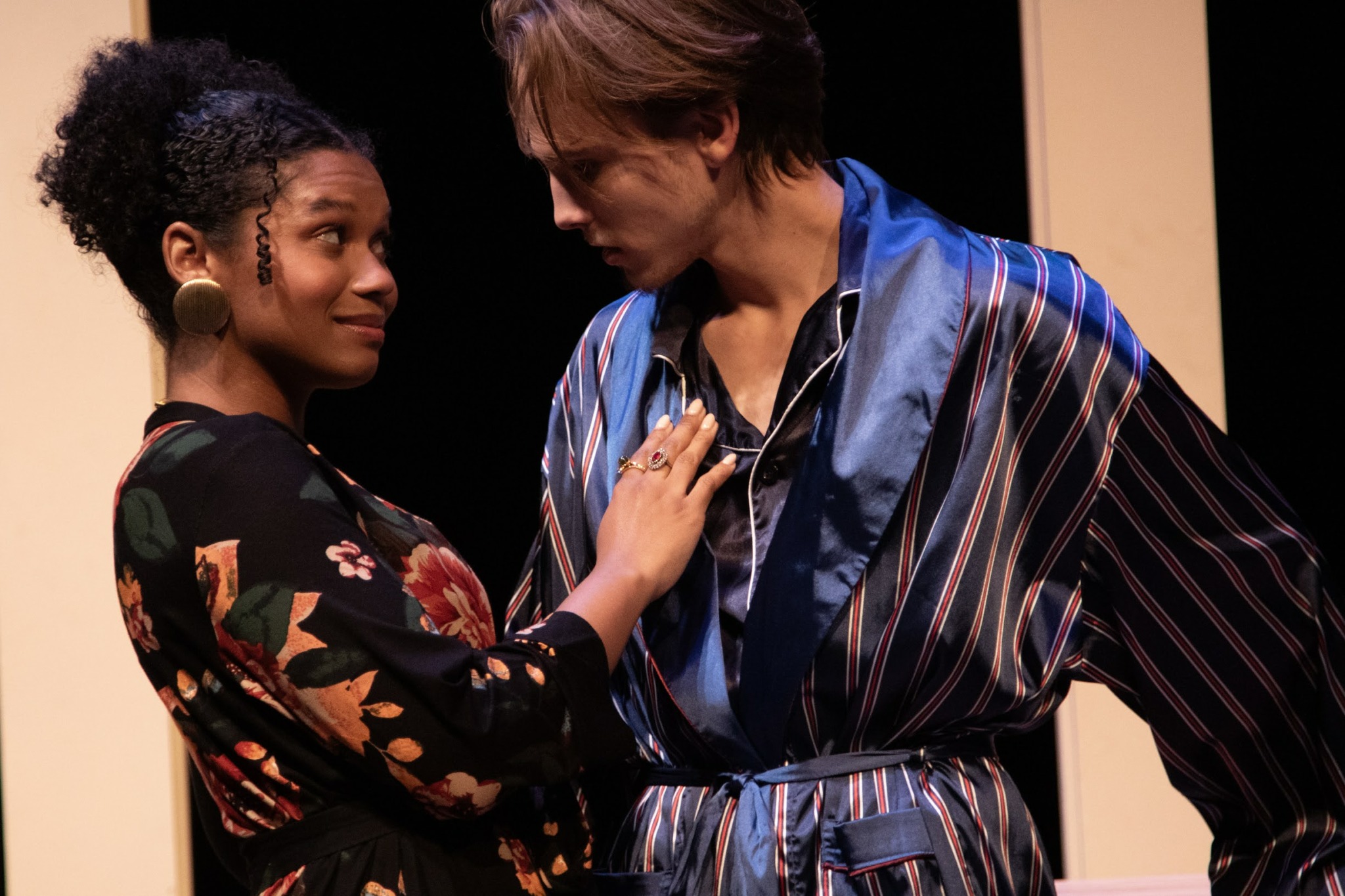
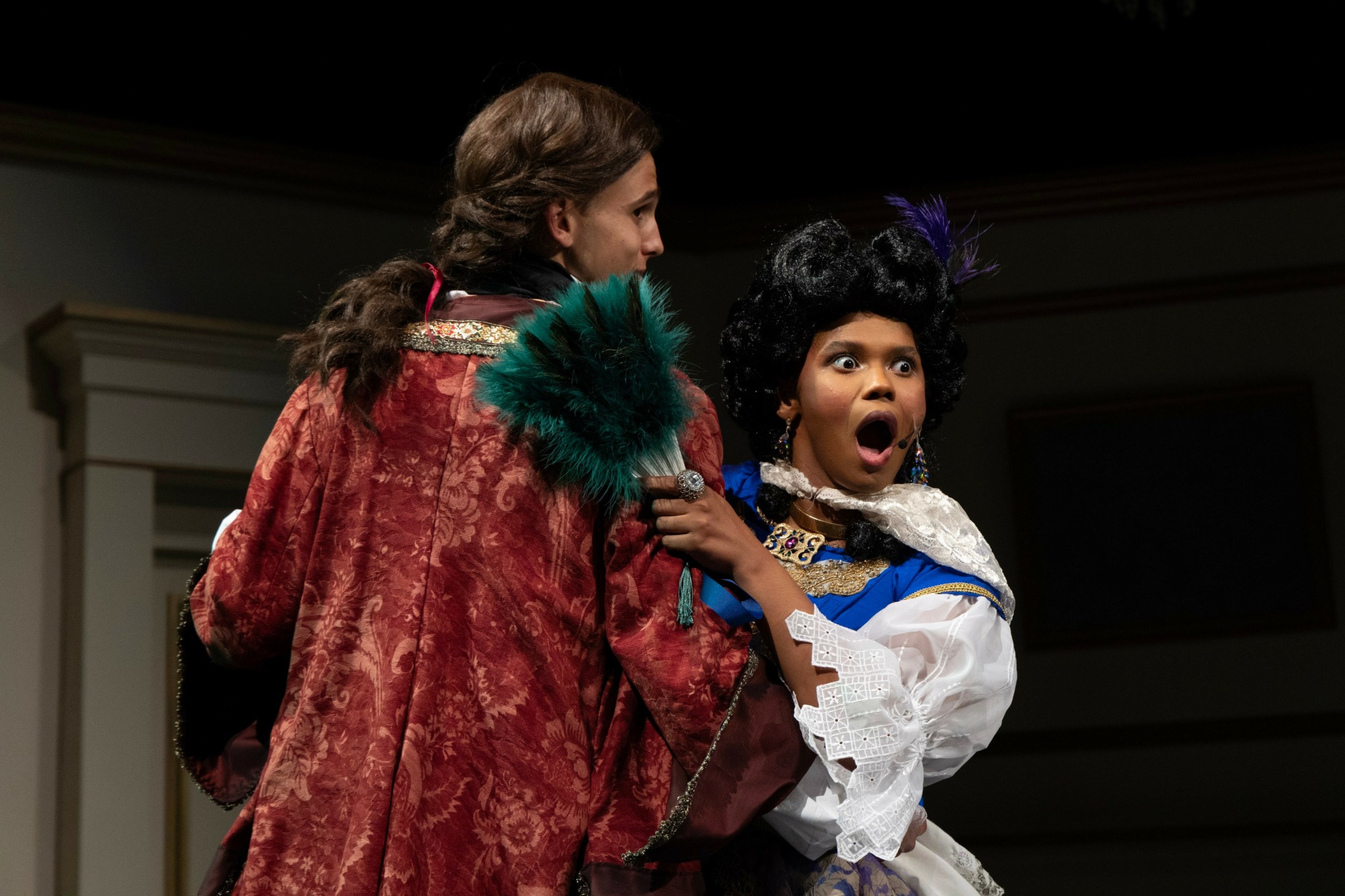
In your view, what can society to do to best support artists, creatives and a thriving creative ecosystem?
The most obvious answer to me right now is more funding and less censorship. It is pretty heartbreaking seeing incredible theaters in threat of closing, no longer because of a pandemic, but because of oppressive forces. So, if society really fought for their theaters, supported financially how they can, or even just engage in the dialogue that our stories try to promote and initiate, then we’ll be in a better direction than we’re headed. It is also super important for arts education to be accessible and available in and out of schools for young people. Whether students continue their artistic lives from there, they will at least have learned empathy and expression, and take that into whatever field they go into.
Contact Info:
- Instagram: gabby_burton
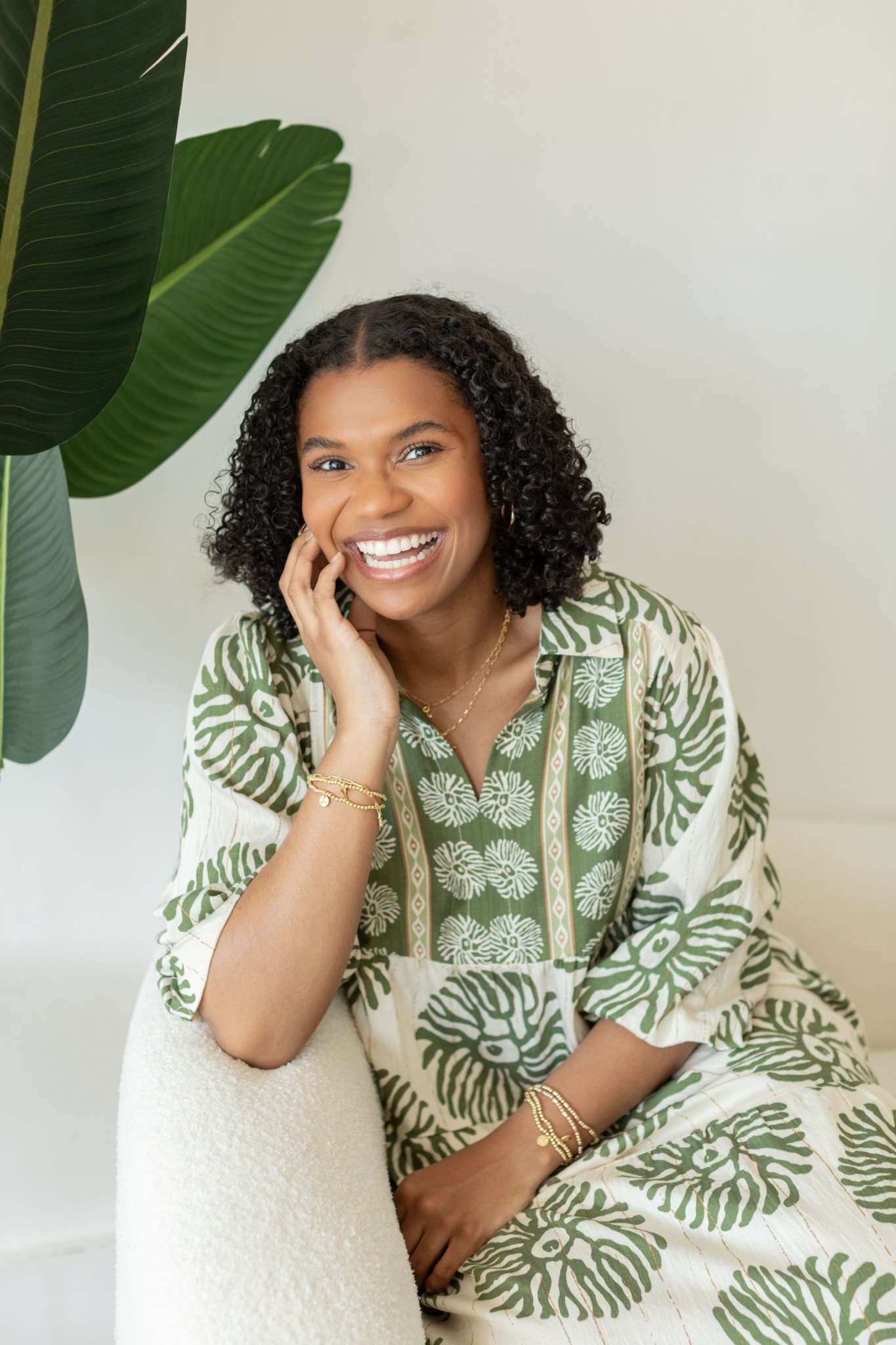
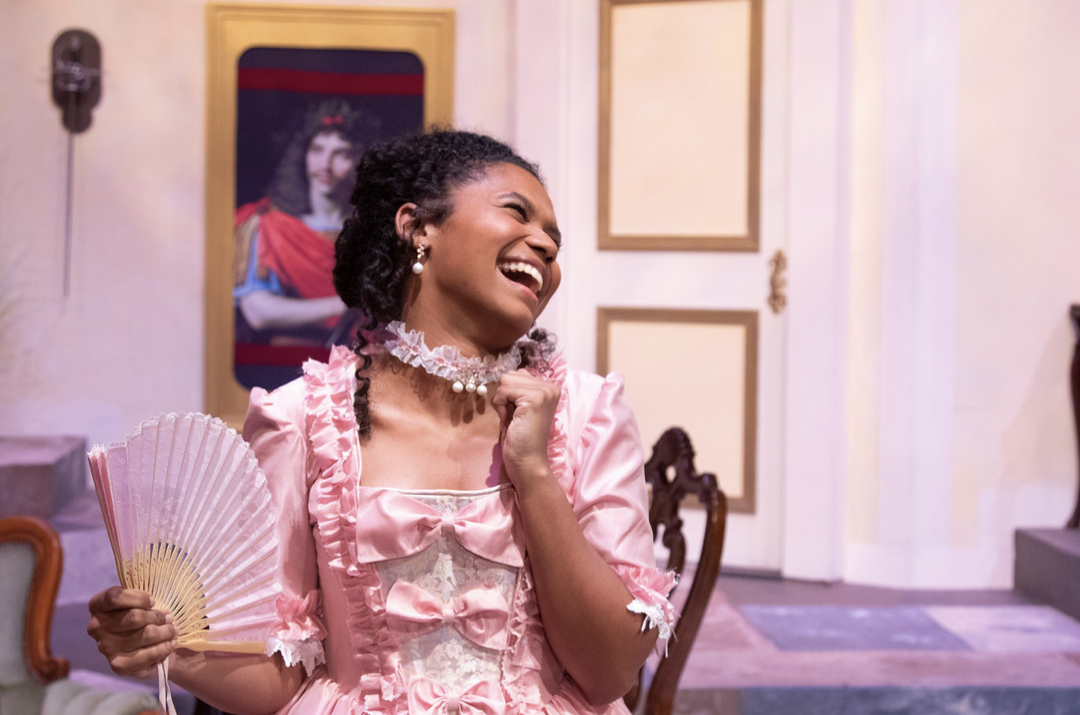
Image Credits
Abbey Hoekzema
Tory Robins Photography


